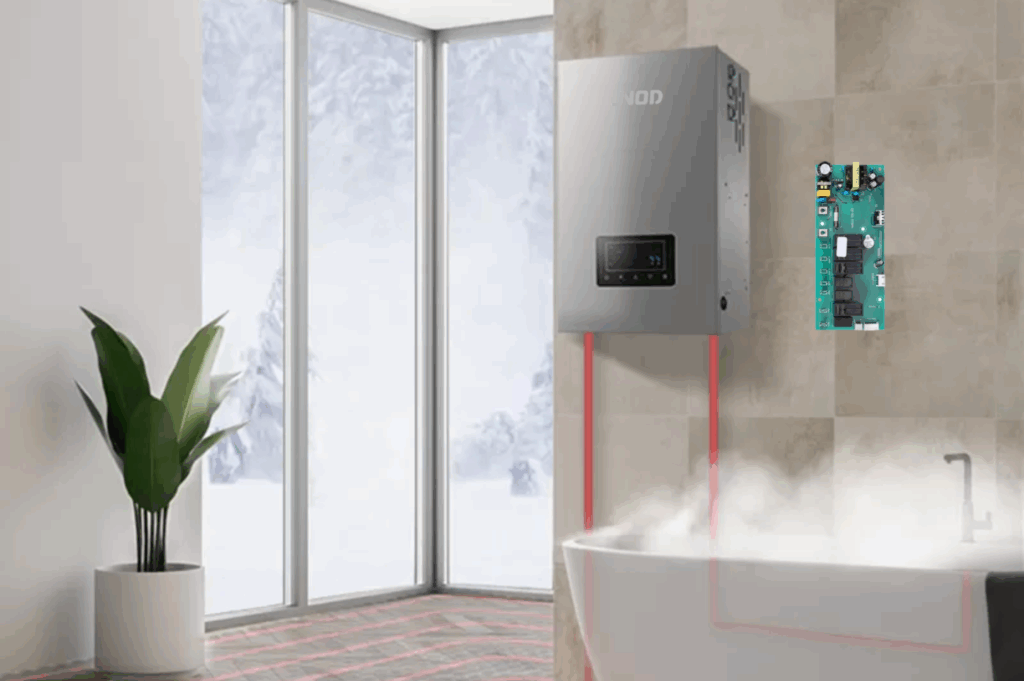The Role of the Electric Boiler Circuit Board in Heating Systems
Modern electric boilers are not mechanical heating devices; they are controlled by advanced electronic equipment to ensure safety, efficiency and reliability. The heart of this control is the electric boiler circuit board, commonly known as the PCB (Printed Circuit Board). What role does it play in the operation of an electric boiler? And why is it so crucial in heating systems? Follow me to find out.
What is an Electric Boiler’s Circuit Board?
The electric boiler’s circuit board is the “brains” of the system. It manages and coordinates all electronic functions, ensuring the heating elements, circulation pumps, and safety devices work seamlessly together. Its presence ensures the boiler operates safely and efficiently.

What is the Role of a circuit board?
Power Control
The circuit board controls the current flowing to the heating element, ensuring the appropriate power is used to achieve the user-set temperature. This prevents overheating and reduces energy consumption.
Temperature Regulation
The circuit board is connected to a temperature sensor that continuously monitors the water temperature. Based on the water temperature, it determines whether to turn the heating element on or off to maintain a stable temperature for radiators, floor heating, or domestic hot water.
Safety Monitoring
The circuit board integrates the following safety features:
- Overheat protection – If the temperature becomes too high, the boiler will automatically shut down.
- Pressure relief system – Ensures safe operation of the boiler under various conditions.
- Fault detection – Detects problems early and displays error codes.
Circulation Pump and Flow Control
In electric boilers with a built-in circulation pump, a circuit board controls the flow of water through the heating system. This ensures that heat is evenly and efficiently distributed throughout the water heating circuit.
User Interface and Smart Features
The board connects to a control panel, thermostat, and Wi-Fi module. Users can:
- Adjust temperature settings.
- Set heating schedules.
- Integrate with smart home systems.
Why It Matters in Heating Systems
- Efficiency: A well-designed circuit board optimizes energy use, improving boiler efficiency (often above 98%).
- Reliability: By managing safety systems, it reduces breakdowns and prolongs the life of the boiler.
- Ease of Service: Fault codes and diagnostics make it easier for installers and contractors to identify problems quickly.
- Flexibility: Supports multiple heating applications—radiators, floor heating, and domestic hot water.
Conclusion
An electric boiler’s circuit board is more than just a component; it serves as the central hub that ensures the safe, efficient, and reliable operation of your heating system. For installers, understanding the role is crucial for troubleshooting and maintaining the system. For homeowners, it’s an invisible component that ensures warmth, comfort, and peace of mind.
